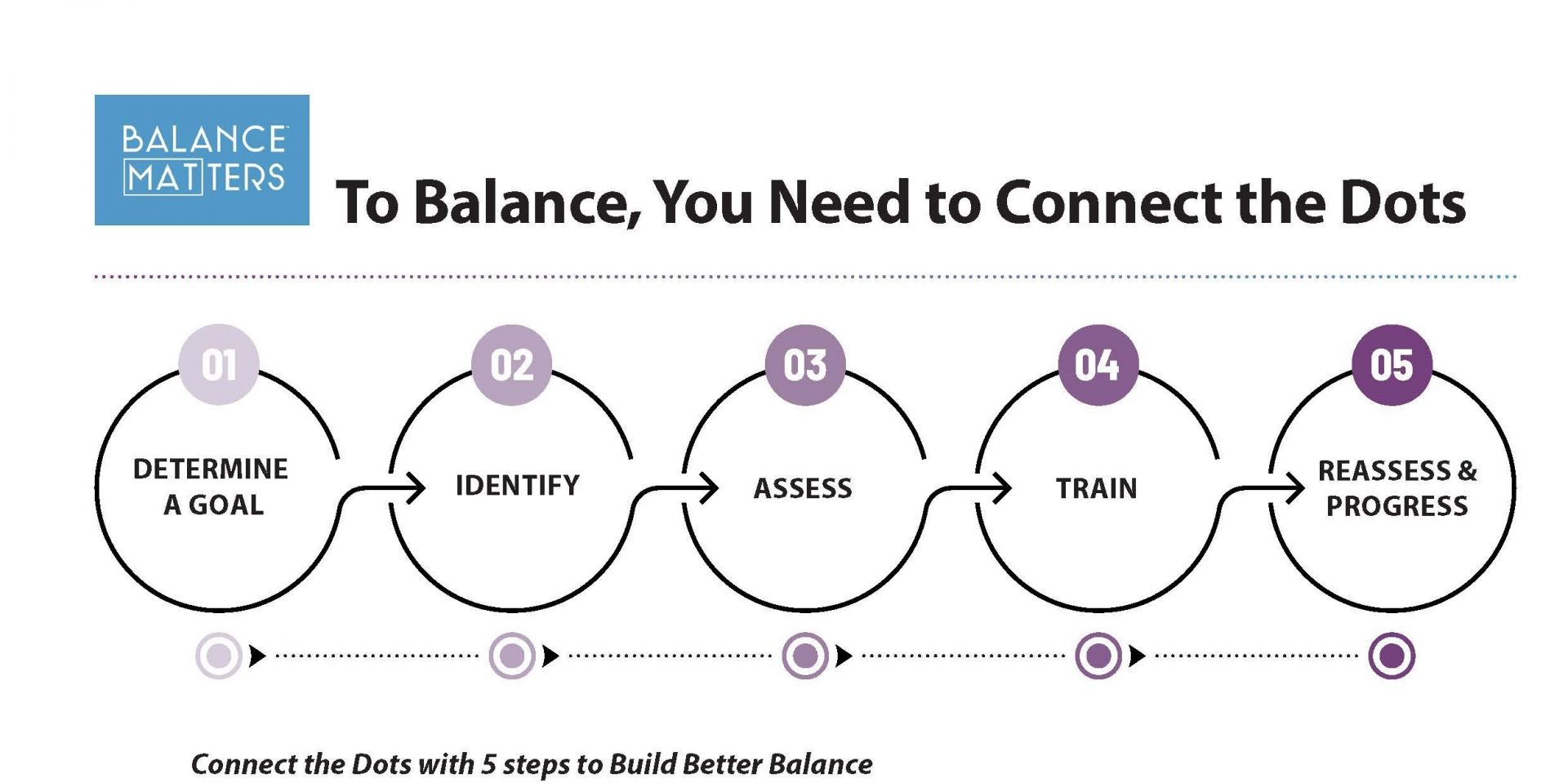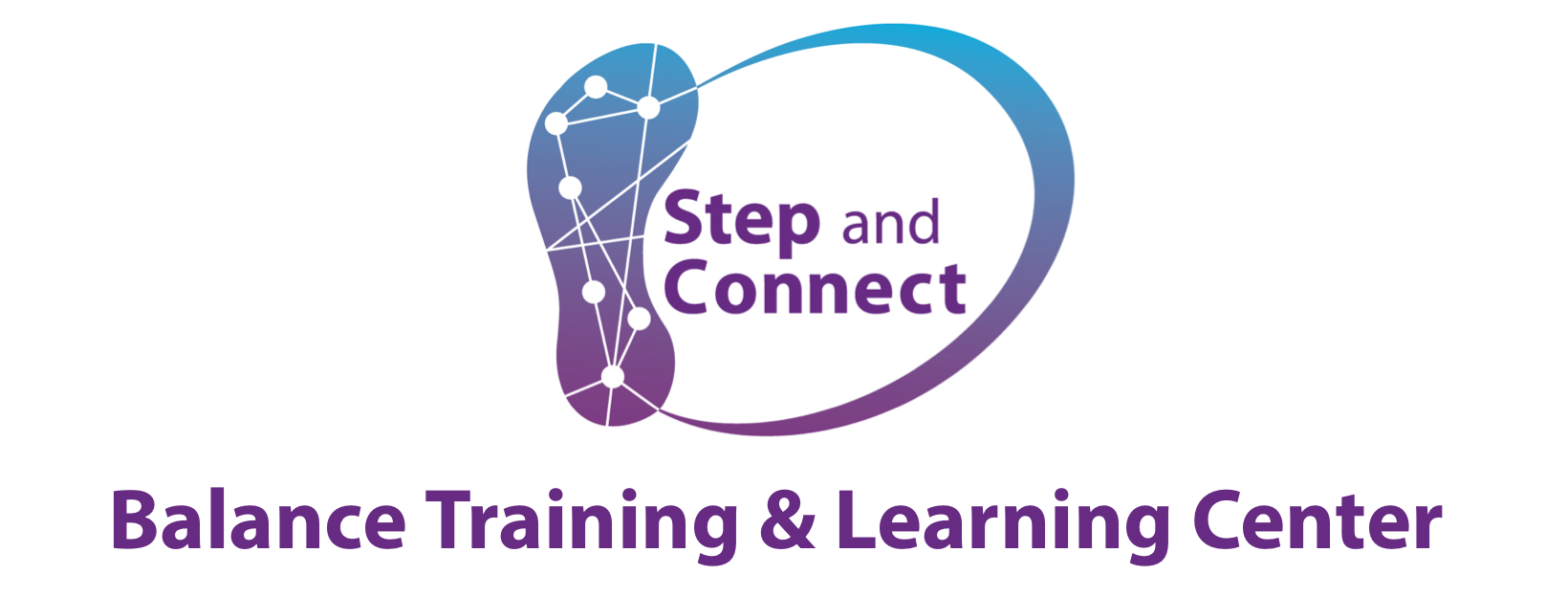Join today
Balance Matters Certification Level 1
Balance matters for all ages and fitness levels, but choosing the right exercise and feedback also matters to optimize and progress balance and motor performance.
How we teach matters. Learn how changing your words, a client’s focus of attention or using feedback can improve balance and enhance learning. This course will provide clinicians with the necessary tools to optimize cueing and integrate tactile, visual and auditory feedback from the Balance Matters System to design exercise programs.
We help you connect the dots.
This course is approved in CO for 20 hours of CEUs.
We provide all the details to be able to submit for CEUs in your home state, too.
Special Discounts:
How we teach matters. Learn how changing your words, a client’s focus of attention or using feedback can improve balance and enhance learning. This course will provide clinicians with the necessary tools to optimize cueing and integrate tactile, visual and auditory feedback from the Balance Matters System to design exercise programs.
This course is designed to enhance your understanding of the multiple facets and complexities of balance with a more in depth understanding of how to incorporate the sensory (visual, somatosensory, and vestibular) systems so that you can effectively assess and train balance and gait.
We help you connect the dots.
We provide the most current balance and motor learning research and translate it to clinical applications with creative exercises that you can use right away.
March 19-20, 2022 8-5pm at
Total Health Solutions (Gait Happens)
Total Health Solutions (Gait Happens)
11485 W. 8th Ave, Suite 140
Lakewood, Co 80215.
Lakewood, Co 80215.
This course is approved in CO for 20 hours of CEUs.
We provide all the details to be able to submit for CEUs in your home state, too.
Special Discounts:
Save $50 off course: Early registration before January 31, 2022
(Use code: DEN50) or group >3 email for discount code
Save 20% off all products with purchase of course
(Use code: DEN50) or group >3 email for discount code
Save 20% off all products with purchase of course
(discount code will be emailed after enrolled in course)
Write your awesome label here.

Overview
Here is what we will cover in this course
Motor Learning Principles
Apply motor learning principles when designing balance programs including appropriate learning strategies, practice schedules, task difficulty and feedback.
Balance Dosing
Design appropriately dosed balance exercises including progressions and regressions using multi-sensory feedback from the Balance Matters System. Target the “just right” amount of speed, step length, visual input, surface challenge, pattern complexity and cognitive challenge for your high-level athlete to your older adult who wants to prevent falls.
Multi-Sensory Feedback
Understand when to use specific feedback modalities (visual, tactile and auditory) to address both the temporal and spatial parameters of movement.
Cueing
Provide external focus of attention cues using the 3 D’s (distance, direction, and description) for balance, functional movements and gait.
Sensory Specific Training
Identify how to incorporate sensory specific balance challenges based on your exam.
Demonstrate how to train proprioception of the spine, shoulder, knee, hip and ankle and how to challenge the vestibular system using the Balance Matters System.
Demonstrate how to train proprioception of the spine, shoulder, knee, hip and ankle and how to challenge the vestibular system using the Balance Matters System.
Gait
Identify how to assess and train specific phases of gait using sensory feedback.
Understand the interaction of the sensory systems during obstacle negotiation.
Understand the interaction of the sensory systems during obstacle negotiation.
Movement Strategies
Assess and train ankle, hip and stepping strategies.
Identify phases of sit to stand and how to integrate and cue the sensory systems.
Identify phases of sit to stand and how to integrate and cue the sensory systems.
Making "Sense" of Turns
Demonstrate an understanding of center of mass control during different types of turns and the role of the sensory systems and biomechanics.
Music and Rhythm
Understand how you can use rhythm, groove and beat perception to improve movement patterns.
The benefits of this course
- Designed by a physical therapist and inventor of the Balance Matters System, this course offers a blended-learning model, with online modules, videos and resources to review at your own pace before or after the class combined with in-person interactive lab intensive to apply and practice exercises.
- Gain special access to the closed Balance Matters Facebook group where you can connect with other clinicians who are took the course, share ideas and exercises. Every 2nd Wednesday at 8:30 pm EST, Erica DeMarch will go live to answer any questions, review exercises and provide updates on new applications from the most current research. Continue learning and networking with access to a monthly mentoring meeting to continue to review exercises.
- Learn beyond the basic balance exercises and discover new creative ways to build and boost your balance programs .
- A playbook for better balance is introduced that can be customized for your clients that provides you the framework to incorporate different learning strategies, elements and practice into balance and gait training.
Meet the instructors
Erica DeMarch
Lead Instructor
Founder and CEO of Step and Connect
Founder and CEO of Step and Connect
Erica DeMarch, MSPT is the Founder and CEO of Step and Connect, a research-driven company producing medical devices, exercise-related educational programs, and training systems for improving balance. Twenty years of expertise as a physical therapist in the areas of neurorehabilitation and vestibular rehab, led Erica to develop the core product line of the business, the patented Balance Matters® System. She is the author of the children’s book, ‘How do you Balance Like That?’ and developed an intergenerational balance program that goes along with the book. She serves as an affiliate faculty member at South College Physical Therapy School. Erica edited the Parkinson’s chapter of the Pathology Textbook, 5th and 4th edition, Implications for the Physical Therapist. She speaks at multiple conferences and teaches continuing education courses globally on the importance of incorporating balance and motor learning into programs.
Kenda Fuller
Guest Lecture: Making "Sense" of Turns
Kenda Fuller, PT, was a pioneer in the practice of vestibular and balance rehabilitation in the 1980’s, certified by the American Board of Physical Therapy Specialists as a neurological specialist in 1990. She is responsible for the neurologic content in Pathology: Implications for Physical Therapists, Elsevier. She contributed to Umphred’s Neurological Rehabilitation by writing chapters on Balance and Vestibular Disorders.
Education has been a strong focus of her career as affiliate faculty at both University of Colorado and Regis University. She has provided extensive continuing education on balance dysfunction throughout the US. Invitations to give international lectures were associated with NeuroCom International, Inc which gave her access to interact with medical practitioners throughout the world. She was instrumental in the development of testing and treatment software for the Proprio 5000, used to identify balance impairments and determine functional limitations. She created the Vestibular and Balance exercise program for Physiotools (https://www.physiotools.com), an electronic exercise product used worldwide.
As co-owner of South Valley Physical Therapy from 2002 to 2020, her independent practice has been focused on the care of patients with complex neurologic and orthopedic conditions causing imbalance. She understands the need to identify the impairments that lead to imbalance and determine best interventions to enhance functional status.
Sarah Thompson
Guest Lecture: Rhythm and Movement
Sarah Thompson, MM, MT-BC, CBIS is
a board-certified music therapist who has used music to influence movement for
17 years. She specializes in working with survivors of neurologic injuries and
individuals living with neurologic diseases. She is the founder and CEO of
Rehabilitative Rhythms and is currently a PhD student. She is a lifelong
learner who is passionate about providing evidence-based practice in healthcare
while keeping compassion and patient satisfaction a top priority.
She earned her undergraduate degree in music therapy University of Kansas, her graduate degree at Colorado State University, and is a Fellow in the Robert F. Unkefer Academy of Neurologic Music Therapy.
Sharing The Science and Art of Evidence-Based Music Therapy Sarah delivers presentations, keynotes, and training seminars that leave audiences inspired. She shares her experiences on the ground working with a broad base of patients while her giving participants actionable tools related to music therapy. www.PossibleWithMusic.org
She earned her undergraduate degree in music therapy University of Kansas, her graduate degree at Colorado State University, and is a Fellow in the Robert F. Unkefer Academy of Neurologic Music Therapy.
Sharing The Science and Art of Evidence-Based Music Therapy Sarah delivers presentations, keynotes, and training seminars that leave audiences inspired. She shares her experiences on the ground working with a broad base of patients while her giving participants actionable tools related to music therapy. www.PossibleWithMusic.org

